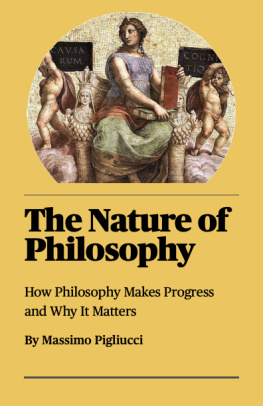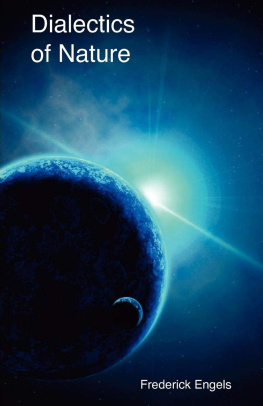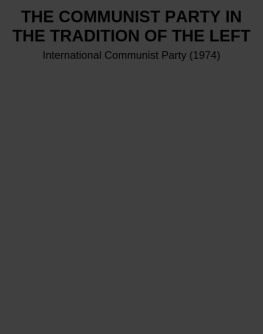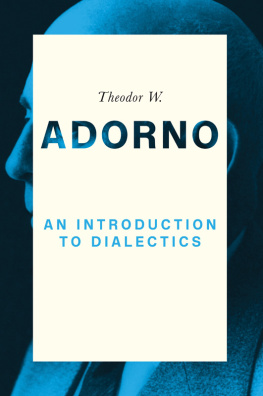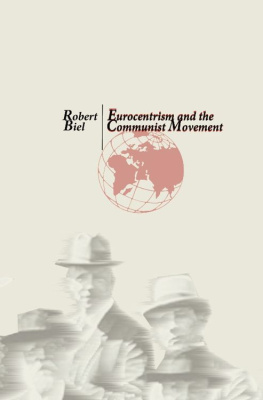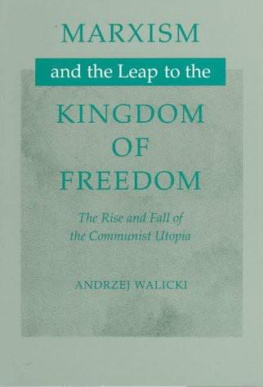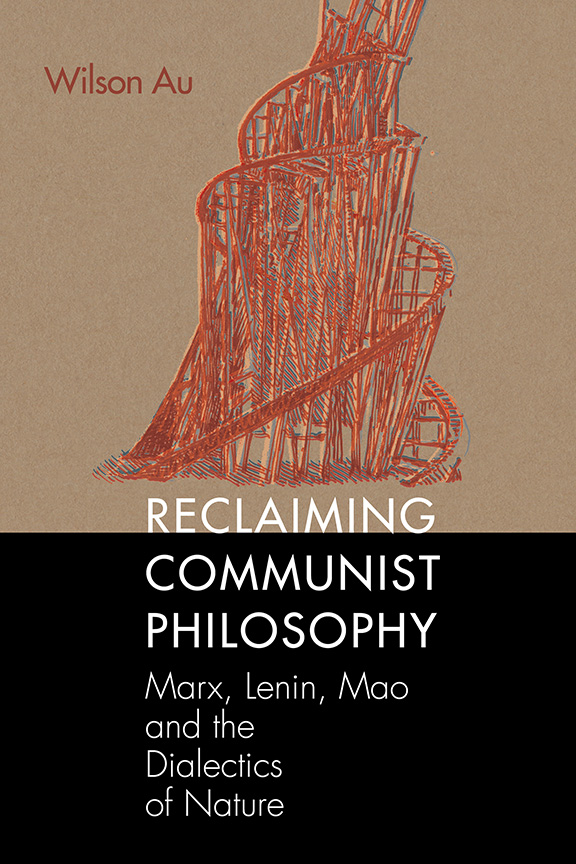______________________________
Reclaiming Communist Philosophy
________
A volume in
Marxist, Socialist, and Communist Studies in Education
Curry Stephenson Malott and Derek R. Ford, Series Editors
My dialectical method is not only different from Hegels, but is its direct opposite. To Hegel the life process of the human brain, i.e. the process of thinking, which, under the name of the Idea he even transforms into an independent subject, is the demiurgos of the real world, and the real world is only the external, phenomenal form of the Idea. With me, on the contrary, the ideal is nothing else than the material world reflected by the human mind, and translated into forms of thought.... The mystification which dialectics suffers in Hegels hands, by no means prevents him from being the 1st to present its general form of working in a comprehensive and conscious manner. With him it is standing on its head. It must be turned right side up again, if you would discover the rational kernel within the mystical shell.
K. Marx , Capital , vol. I, p. 20
... it must be realised that no natural science and no materialism can hold its own in the struggle against the onslaught of bourgeois ideas and the restoration of the bourgeois world outlook unless it stands on solid philosophical ground. In order to hold his own in this struggle and carry it to a victorious finish, the natural scientist must be a modern materialist, a conscious adherent of the materialism represented by Marx, i.e., he must be a dialectical materialist. In order to attain this aim, the contributors to Pod Znamenem Marksizma [Under the Banner of Marxism] must arrange for the systematic study of Hegelian dialectics from a materialist standpoint, i.e., the dialectics which Marx applied practically in his Capital and in his historical and political works.... Taking as our basis Marxs method of applying materialistically conceived Hegelian dialectics, we can and should elaborate this dialectics from all aspects, print in the journal excerpts from Hegels principal works, interpret them materialistically and comment on them with the help of examples of the way Marx applied dialectics, as well as of examples of dialectics in the sphere of economic and political relations, which recent history, especially modern imperialist war and revolution, provides in unusual abundance. In my opinion, the editors and contributors of Pod Znamenem Marksizma should be a kind of Society of Materialist Friends of Hegelian Dialectics... Unless it sets itself such a task and systematically fulfills it, materialism cannot be militant materialism.
V. I. Lenin , On the Significance of Militant Materialism , March 1922
The oppressors oppress the oppressed, while the oppressed need to fight back and seek a way out before they start looking for philosophy. It is only when people took this as their starting-point that there was Marxism-Leninism, and that they discovered philosophy.
Mao Tsetung , Talk on Questions of Philosophy , August 18, 1964
The great basic thought that the world is to be comprehended not as a complex of ready-made things but as a complex of processes, in which apparently stable things no less than the concepts, their mental reflections in our heads, go through an uninterrupted change of coming into being and passing away, in which, through all the seeming contingency and in spite of all temporary retrogressions, a progressive development finally asserts itself... But it is one thing to acknowledge it in words and another to carry it out in reality in detail in each domain of investigation. If, however, investigation always proceeds from this standpoint, the demand for final solutions and eternal truths ceases once and for all; we are always conscious of the necessarily limited nature of all knowledge gained, of its being conditioned by the circumstance in which it was gained. On the other hand, we no longer permit ourselves to be imposed upon by the antitheses, which are insuperable for the old metaphysics, still all too current, between true and false, good and evil, identical and different, necessary and accidental. We know that these antitheses have only a relative validity; that what is now recognized as true also has its hidden false side which will later manifest itself, just as what is now recognized as false also has its true side, by virtue of which it could previously be regarded as true; that what is maintained to be necessary is composed of sheer contingencies, and that the so-called accidental is the form behind which necessity hides itself.
F. Engels , Ludwig Feuerbach and the End of Classical German Philosophy , p. 41
[The laws of dialectics] are developed by Hegel in his idealist fashion as mere laws of thought : the first, in the first part of his Logic, in the Doctrine of Being; the second fills the whole of the second and by far the most important part of his Logic, the Doctrine of Essence; finally the third figures as the fundamental law for the construction of the whole system. The mistake lies in the fact that these laws are foisted on nature and history as laws of thought, and not deduced from them. This is the source of the whole forced and often outrageous treatment; the universe, willy-nilly, is made out to be arranged in accordance with a system of thought which itself is only the product of a definite stage of evolution of human thought. If we turn the thing round, then everything becomes simple, and the dialectical laws that look so extremely mysterious in idealist philosophy at once become simple and clear as noonday.
F. Engels , The Dialectics of Nature , p. 62
______________________________
Reclaiming Communist Philosophy
Marx, Lenin, Mao, and the
Dialectics of Nature
________
Wilson W. S. Au
INFORMATION AGE PUBLISHING, INC.
Charlotte, NC www.infoagepub.com
Library of Congress Cataloging-in-Publication Data
A CIP record for this book is available from the Library of Congress
http://www.loc.gov
ISBN: 978-1-68123-743-5 (Paperback)
978-1-68123-744-2 (Hardcover)
978-1-68123-745-9 (ebook)
Cover design by John Fadeff. The graphic on the cover depicts Vladimir Tatlins Monument to the Third Internationale. It was never built.
Copyright 2017 Information Age Publishing Inc.
All rights reserved. No part of this publication may be reproduced, stored in a
retrieval system, or transmitted, in any form or by any means, electronic, mechanical,
photocopying, microfilming, recording or otherwise, without written permission
from the publisher.
Printed in the United States of America
Acknowledgments
T his work owes much to political activists the world overfar too many to namewho read earlier versions and made helpful suggestions. However, one particular person should be namedmy partner Kathleen Vail Au. A largely self-taught intellectual, proletarian in roots and outlook but with a weak background in the sciences that is all too typical of many Americans, her devotion to the liberation of the oppressed of the world nonetheless drove her to study the manuscript through its many revisions, always insisting on clear explanations. Her rephrasing of daunting material is present throughout the book, thereby making the book far more accessible to a non-academic audiencewhich is not to say that the book is an easy read. Her love of literature led me to the Kenyan writer, Ngugi wa Thiongo and particularly his novel, Matigari , which I adopted as the nom de plume for circulating early versions of this manuscript.


